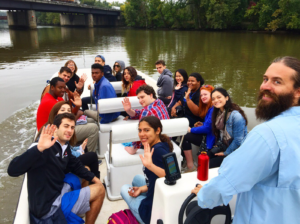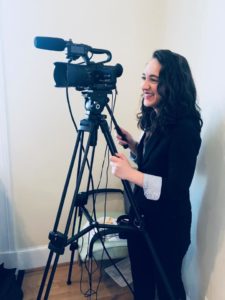
Me at my internship in the El-Hibri Foundation
With just a few weeks left of this semester in the AU Gap program, I find myself reflecting on my gap experience and the lessons I will take away. Through classes and workshops, I’ve learned valuable interview and networking skills. I now have a polished resume, know how to write a cover letter, and feel prepared to apply for future jobs and internships. And, going to college, I’ll already have internship experience which will set me apart from my peers.
This semester, I’ve interned at the El-Hibri Foundation (EHF), an organization that equips Muslim leaders and allies with the tools to build thriving, inclusive communities through grants and various programs. EHF provides grants to nonprofits that serve American Muslim Communities. They also offer resources in areas like capacity-building and strategic planning. With my interest in international relations, social justice, and empowering marginalized groups, I knew before I even started interning that EHF would offer invaluable lessons.
Perhaps one of the most exciting parts of my internship has been working during the trainings that EHF offers their grantees. Earlier this month, I assisted the foundation during a Nonprofit Management Training, transcribing speeches, greeting attendees, and filming and recording the event. Each task provided insights into event work and how events run smoothly: picture that image of a swan, graceless and effortless above water, frantically paddling below. But in between running up and down flights of stairs with each new task, I had the opportunity to network with the event participants. I spoke to employees at think tanks, respected imams, and even a former diplomat! And in the moments where I was sitting, taking in each word the speakers were saying, I had the chance to learn alongside these notable people. Over my time at the El-Hibri Foundation, I’ve developed a profound appreciation for the work they, and other nonprofits like them, do. I’ve been welcomed into the foundation, learning valuable lessons from people I’ve come to deeply respect, and I have a sense that the work I’ve done is appreciated and valued. I feel grateful that I’ve had this experience; grateful to the El-Hibri Foundation and the AU Gap program. I can’t think of another place where I would have the opportunity to explore my passions in such a way. With just a few weeks left of this program, I can’t wait to see what my remaining time entails, and I’ll be sure to soak up every ounce of new information I learn. – Isabelle Moshiri- Elwood, AU GAP Program Student
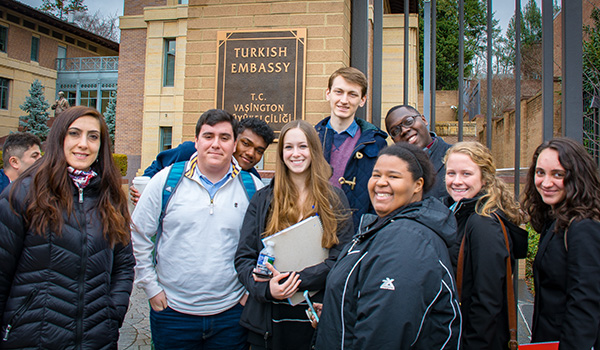
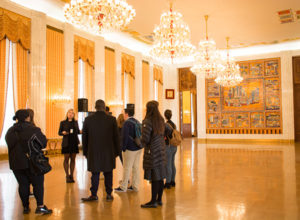 t with Deputy Head of the Economic Section, Grigory Zasypkin. At the Turkish Embassy the following week, they attended a private seminar on cultural diplomacy with Embassy Counselor Celil Erdogan.
t with Deputy Head of the Economic Section, Grigory Zasypkin. At the Turkish Embassy the following week, they attended a private seminar on cultural diplomacy with Embassy Counselor Celil Erdogan.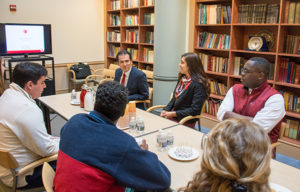 owcase Turkish national identity to a wider global audience. One such campaign is their annual “Turkey Home” event, where artists, journalists, clergymen, intellectuals and other “opinion makers” come together at the Ministry of Culture and Tourism in Ankara to network and forward the mission of culture-making in Turkey.
owcase Turkish national identity to a wider global audience. One such campaign is their annual “Turkey Home” event, where artists, journalists, clergymen, intellectuals and other “opinion makers” come together at the Ministry of Culture and Tourism in Ankara to network and forward the mission of culture-making in Turkey.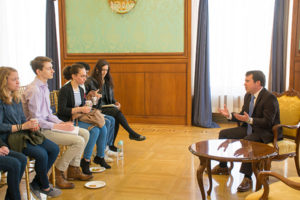 ey have achieved the positions they hold today is due to their pride and gratitude for being an visible representative of their home countries.
ey have achieved the positions they hold today is due to their pride and gratitude for being an visible representative of their home countries.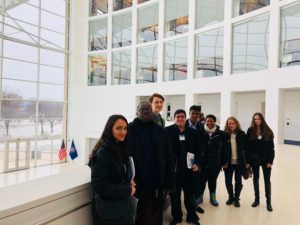
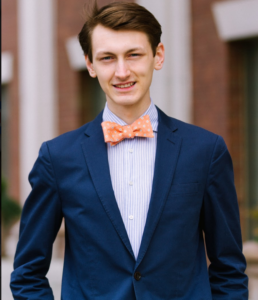 Although New York City claims the title for “The City that Never Sleeps,” I would argue that Washington, D.C. is “The City that Never Remains Silent.” The District is alive with conversation, and any passersby can overhear a conversation over simple preferences to a lively debate over the political issues frequently depicted in The Washington Post. Our nation’s capital, Washington, D.C., is an incubator for problem-solving; the place where passionate discussion centers around the nuanced and multifaceted problems facing the United States today.
Although New York City claims the title for “The City that Never Sleeps,” I would argue that Washington, D.C. is “The City that Never Remains Silent.” The District is alive with conversation, and any passersby can overhear a conversation over simple preferences to a lively debate over the political issues frequently depicted in The Washington Post. Our nation’s capital, Washington, D.C., is an incubator for problem-solving; the place where passionate discussion centers around the nuanced and multifaceted problems facing the United States today.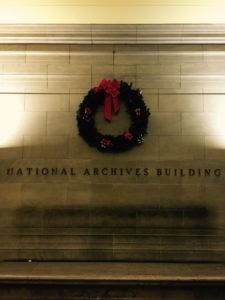
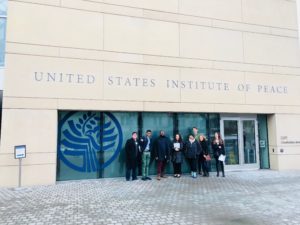 Next, Professor Gur jumped right into the experiences that make the AU Gap Program so unique – visits to the US Institute of Peace and the State Department are only the beginning of the adventures she will enthusiastically guide us in exploring throughout this semester. I’ve also done some surveying of my own, visiting historic Georgetown and a talk led by Jeb Bush at the American Enterprise Institute. As a liberal, the latter was a fascinating cross-ideological discussion of school choice in the face of an ever increasingly automated technological society. I feel right at home in DC’s political arena.
Next, Professor Gur jumped right into the experiences that make the AU Gap Program so unique – visits to the US Institute of Peace and the State Department are only the beginning of the adventures she will enthusiastically guide us in exploring throughout this semester. I’ve also done some surveying of my own, visiting historic Georgetown and a talk led by Jeb Bush at the American Enterprise Institute. As a liberal, the latter was a fascinating cross-ideological discussion of school choice in the face of an ever increasingly automated technological society. I feel right at home in DC’s political arena.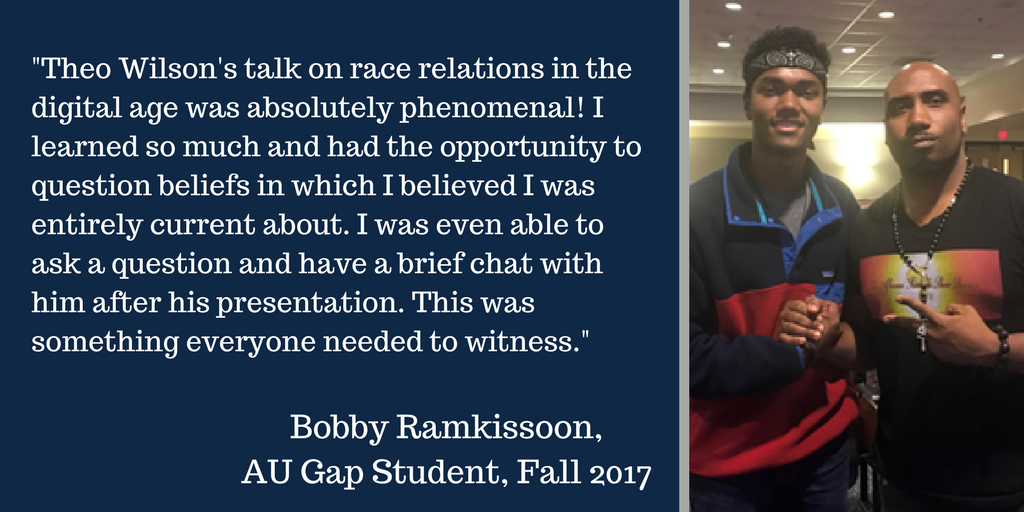
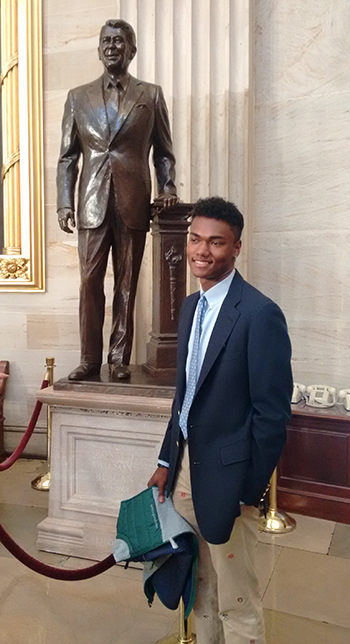
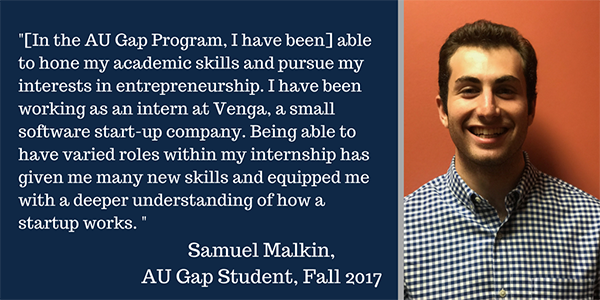
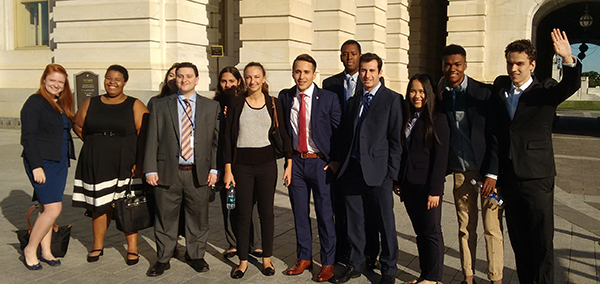 see how students would design elections and change the representation of the people in Congress, as well as to establish the rights of groups that had been previously excluded.
see how students would design elections and change the representation of the people in Congress, as well as to establish the rights of groups that had been previously excluded.